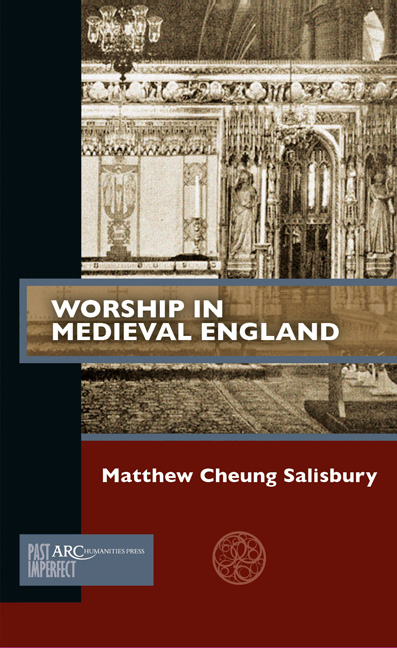Chapter 3 - Working with Liturgical Sources
Published online by Cambridge University Press: 27 January 2021
Summary
It is hoped that the preceding chapters have had at least one effect on the reader: the realization that the study of the medieval liturgy is a frustrating but potentially rich and fulfilling exercise, which can tell us a great deal not only about the worship of the Church but also about the people who practised it. Nevertheless, earlier chapters may also have indicated— correctly— that previous scholarship is problematic and difficult to use, owing to misconceptions and outdated ideas, and the reader may feel that going back to first principles, ignoring what has come before, would represent too much effort with too little gain. These observations are worth noting even by those with considerable experience in liturgical studies, and by those experienced in liturgical performance.
Happily, this chapter suggests how one might be able to use, and not to use, the existing editions and scholarship which have come down to us from the last two centuries, and which have never been more available, thanks to efforts to digitize manuscripts and early prints, not to mention the scarce modern books which often record previous generations’ liturgiological efforts.
Here, I discuss “liturgical studies” as a discipline which, in reality, stands within other specialities, perhaps because it lacks a unitary identity (does any discipline have one?). I then consider some of the ways that recent work has challenged the orthodoxies which dominated liturgical scholarship well past the mid- point of the twentieth century, even though scholars of previous generations had raised questions about them. I address some of the old editions and other resources which have come down to us and which are ubiquitous in many libraries, and suggest some productive ways in which they might be used without problems, before reflecting on some of the ways that the digital turn in scholarship may be beneficial— but also possibly dangerous— to some areas of liturgical research. Finally, I return to the idea of “liturgiology” as a discipline, seeking to reimagine it in light of some of the trends in scholarly working in the twenty- first century.
An “Amateur” Occupation
It has often been the case that a great deal of liturgical work has been done by specialists in other disciplines, or indeed by amateurs (in the most positive sense of that word).
- Type
- Chapter
- Information
- Worship in Medieval England , pp. 65 - 86Publisher: Amsterdam University PressPrint publication year: 2018



